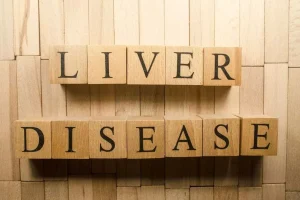All About Alcoholic Rage Syndrome: The Angry Drunk Phenomenon and How To Get Past Alcoholic Rage
Break-Even Point: Formula and Analysis
22 de outubro de 2020The Eye-Opening Science Behind Alcoholic Rage FHE Health
23 de outubro de 2020
When dealing with alcoholic rage syndrome, it’s crucial to recognize the signs and seek help for yourself or your loved one. You don’t need to navigate this difficult journey alone – compassionate support is available. In many cases, the person experiencing alcoholic rage may not even realize the extent of the damage they are causing until it’s too late. “Keep in mind that any amount of drinking can influence emotions and behavior,” O’Brien says.
- It is important to differentiate alcoholic rage from regular anger, as the former tends to be disproportionate and unprovoked.
- – Collecting a detailed medical history, including an assessment of alcohol consumption patterns.
- Alcohol has a significant impact on brain chemistry and emotional regulation.
- AA is not for everyone and there are plenty of different treatment options, but it can be successful and meaningful for those who choose it.
- Reach out to us today, and we’ll guide you through the process of talking to your loved one about alcohol treatment.
LOVED ONES AS SAFE TARGETS
A lack of impulse control can make a person unable to resist the sudden, forceful urge to fly into a rage or act aggressively. There are a number of cognitive, neurobiological, and social factors that can influence how alcohol affects aggression. If your partner shows intense feelings of anger and a lack of self-control when drinking, reach out for help. The treatment should target both the person’s mental health and substance use disorder as two parts of a whole.
The Effects of Alcohol on the Brain and Emotions
It is crucial for individuals affected by alcoholic rage to seek treatment and find support to address their alcohol use disorder and manage their aggression. One tip is to encourage open communication within the family and seek professional help to develop strategies for anger management and conflict resolution. This can make it harder for you to think clearly and what is alcoholism manage your behavior, leading to increased aggression. “Keep in mind that any amount of drinking can influence emotions and behavior,” O’Brien says.

The Effects of Living With an Alcoholic Spouse
- The FHE Health team is committed to providing accurate information that adheres to the highest standards of writing.
- Alcohol can intensify existing emotions, often resulting in an exaggerated display of anger.
- It also noted that sexual aggression was higher with alcohol, even in men with low-trait anger and reasonable anger-management skills.
- In other words, we’re likely to do things — including giving others an earful as soon as we feel irked — without thinking about the potential fallout.
The more calm and rational you can remain, the better the chances are that their anger will simmer down. This is part of our ongoing commitment to ensure FHE Health is trusted as a leader in mental health and addiction care. The ultimate goal is to help them get into a treatment program that addresses their substance abuse and the way it causes them to behave. But this is often easier said than done, and mean drunks can turn violent when provoked — meaning that if you share a living space with one, your safety should be your main priority. When they aren’t under the influence, you can try speaking openly with them about how their actions make you feel, how they’re affecting your family and why something needs to change. Now that we know what alcoholic rage syndrome is, can we do anything about it?
Alcoholic Rage Symptoms
It is important to note that alcohol-related aggression and/or violence do not occur in the majority of all chronic alcohol consumers or all alcohol-dependent individuals. The report concluded that alcohol increased the odds of physical aggression in those men who had high-trait anger and poor anger-management skills. It also noted that sexual aggression was higher with alcohol, even in men with low-trait anger and reasonable anger-management skills.
There have been instances in which individuals with alcoholic rage syndrome have faced legal consequences due to their aggressive behaviour. For instance, one individual with drug addiction treatment this syndrome was convicted of assault after attacking a stranger during a blackout episode. This incident highlights the importance of raising awareness and providing support for individuals affected by this condition. Knowing how to handle crises effectively is vital for individuals coping with alcoholic rage syndrome. In high-stress situations, it’s essential to stay calm and take a step back to assess your emotions objectively. Practice techniques to manage your anger, such as counting to ten, focusing on deep breathing, or visualizing a calming environment.

The emotional strain of living with an angry alcoholic partner can be immense. You may feel constantly anxious, tiptoeing around to avoid setting off their anger. This can lead to remorse, humiliation, and self-condemnation, as you may start to believe their anger is somehow your responsibility. When dealing with an angry alcoholic partner, it is crucial to prioritise your safety and well-being as a first step. Reframe supports you in reducing alcohol consumption and alcoholic rage syndrome enhancing your well-being.
Treatment and Management Approaches

The immediate change with rehab is your partner or spouse is safely staying in a specialist centre. Keeping them away for a while can save relationships between partners, children, families and friends. Remember to focus on self-care activities like working out, meditating, and spending time with loved ones. Seeking therapy can also help you manage your emotions and build effective coping mechanisms. It is crucial to establish boundaries and create a safety plan for emergencies.
Is Alcohol Use Disorder (AUD) the Same Thing as Alcoholism?
It’s essential to commit to a sobriety plan and alcohol abuse intervention to help prevent relapse and manage anger effectively. It’s essential to commit to a sobriety plan and alcohol abuse intervention to help prevent relapse and manage anger effectively. For that reason, abstaining from alcohol altogether may be the best way to prevent undesirable effects, such as relationship issues or legal trouble.
